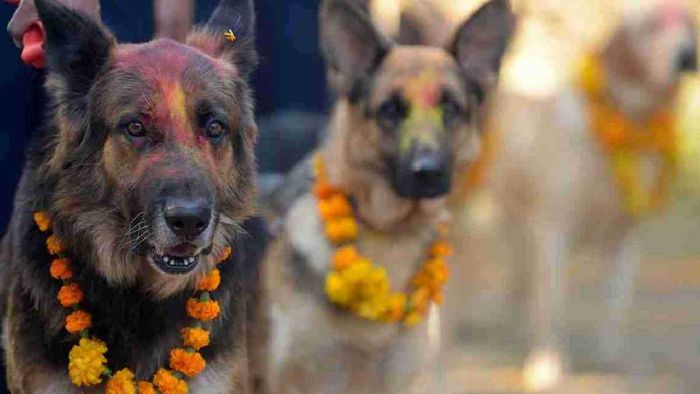Tihar festival: The Diwali celebration in the Northeastern state of Sikkim
Sikkim is celebrating the Tihar festival, also considered the second largest festival of the Gorkha-Nepali Community

- Oct 25, 2022,
- Updated Oct 25, 2022, 2:33 PM IST
Sikkim is celebrating the Tihar festival, also considered the second largest festival of the Gorkha-Nepali Community. Tihar, also known as Swanti, is celebrated in the fall, though the precise date changes from year to year.
In Sikkim, the celebration commemorates different animals on different days. The first day, known as "Kak(crow) Tihar," is dedicated to crows, who are given rice and, if caught, are garlanded. Dogs are garlanded on the second day, which is known as "Kukkur(dog) Tihar."
On the third day, the cows are honoured with garlands and their horns are brightly decorated. On the fourth day, it is the turn of the bullocks. The fifth day is also known as Bhai Tika when brothers visit their sisters' houses and apply tikas vermilion on each other's foreheads.
It is incredibly important to the people of Sikkim since it also honours animals and the good they provide for people. Markets are already filled with various kinds of flowers in the market.
Markets are busy with people, and different types of flowers are offered because people adorn their homes with flowers. Marigold flowers were commonly used to beautify homes.
People also illuminated their houses on the occasion with various kinds of lights, diyas, and candles.
People were seen buying flowers, household appliances, food, and other Diwali things before Tihar Lall Market, Gangtok's main market, witnessed a fair turnout for Diwali shopping. Following Laxmi Puja and Deusi, another major occasion to observe is Bhai Tika.
Tihar is also a celebration of 'inner light' triumphing over spiritual darkness, wisdom triumphing over ignorance, and justice triumphing over wrong. It is a joyful reaffirmation of the Hindu idea that virtue will ultimately win over evil.